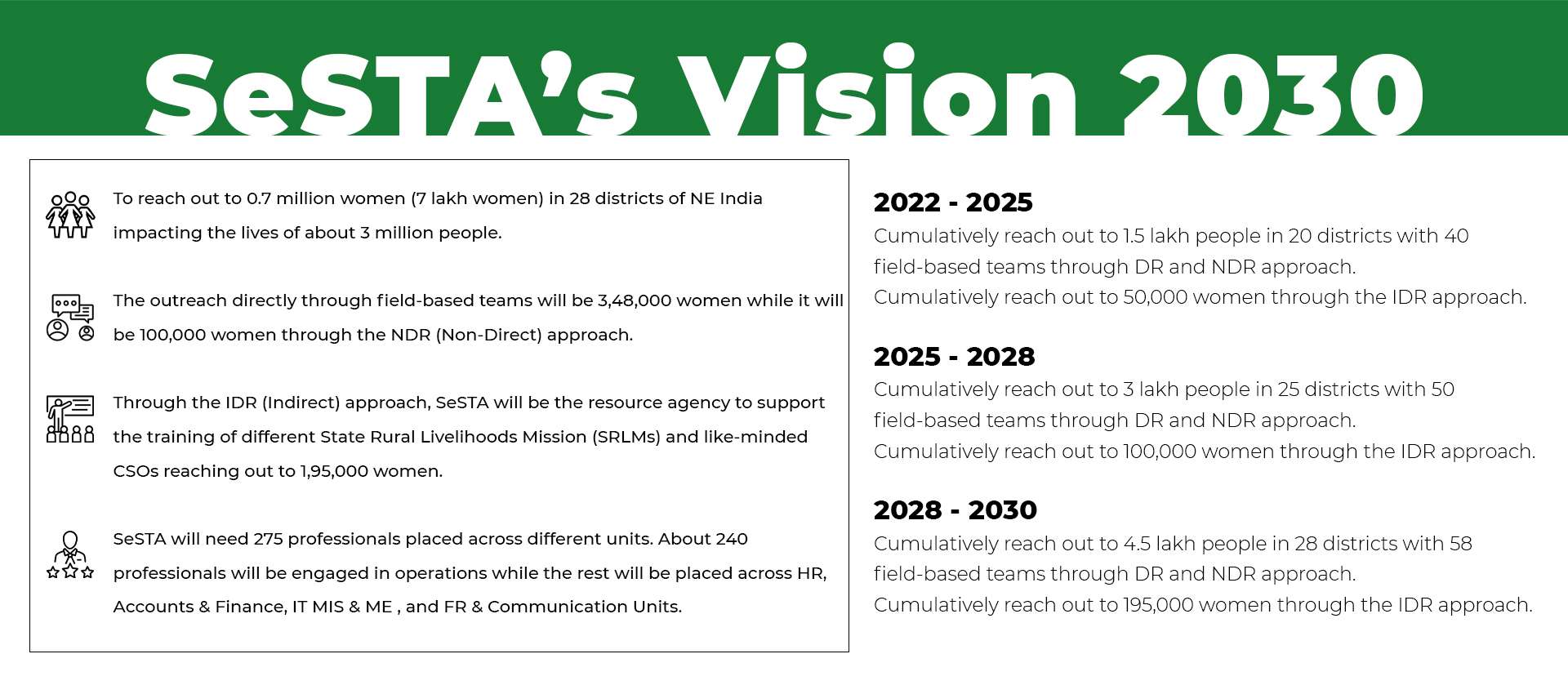Seven Sisters Development Assistance
Approach & Strategy
SeSTA believes sustainability of systems and processes in communities can only come only through empowering the most vulnerable in our society. Therefore, marginalized women are at the forefront of our engagement. SeSTA plays the role of a facilitating agency. Four factors: Time, Effort, Resources and Alliances play crucial roles in triggering sustainable changes.
SeSTA’s Typical 6 Year Journey In A Block
Year 1
Year 1
Year 2
Year 1-2
Year 1-3
Year 1-3
Year 4
Year 4
Year 5
Year 5
Year 6
Year 6
Scale Up Plan
SeSTA envisions further strengthening of its operations and scaling up in inaccessible areas, directly or by supporting other agencies, across all NE states by 2030 to reach out to more than 7,00,000 poor and vulnerable women and as many households. This will mean working with about 5,000 interior villages on the overall development including food security and sustainable incomes through intensive livelihoods engagement, nutrition and health, women’s empowerment and grassroots governance. These women will be collectivized into Community Institutions including 45,000 SHGs, 6000 Village Organizations (VOs) and 45 Producer Organizations, which will work on entire rural value chains. A set of community cadres will also be groomed to provide quality services at the doorstep. Over a period of six years, SeSTA plans to enhance the income of a family by Rs 50000 per annum. Internal organization strengthening and different external partnerships will play a pivotal role to reach this goal. Apart from strengthening field teams, this will also call for streamlining of Executive Traineeship Programme (ETP) so that well trained human resources can be placed at the grassroots.

